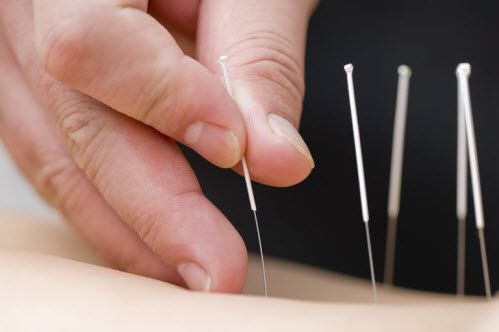
Weakness of Anti-Pathogenic Qi, Weakness of Lung, Spleen and Kidney Qi, Weak Constitution
Any pre-existing constitutional or acquired weakness can predispose patient to a pathogenic invasion, which they cannot repel. Weakness of Lung and Spleen qi can enable a pathogen to penetrate into the qi level. Patients presenting with ying and blood level heat pathogens are often found to have a constitutional predisposition to Kidney weakness, and a family history of related conditions may be seen.

Overwork
One of the most common contributing factors is failure to rest and look after oneself during an acute illness. Patients who try to ‘sweat it out’ and soldier on, or simply ignore the illness and continue to work through it, are especially likely to end up with a lingering pathogen. The diversion of resources away from the fight leads to an incomplete response from the anti-pathogenic qi.
Overwork in general, both physical and mental, drains the basic reserves of yuan qi and weakens the Kidneys. This weakness enables a pathogen to easily enter, and once in to linger, especially at the deep levels, ying, blood and shaoyin. The anti-pathogenic qi is unable to mount a robust defense. Prolonged ‘burning the candles at both ends’ is a common finding in patients who go on to develop chronic fatigue syndrome and other persistent fatigue patterns. Shift workers and those working long hours in stressful situations are particularly vulnerable. These patients tend to develop very prolonged illnesses because the acquired weakness of yuan qi and jing essence complicates removal pf the pathogen and restoration of normal function and recovery.

Immunization
Immunizations may cause a lingering pathogen in some circumstances. Patients who are weak to start with, or who are vaccinated during an acute illness, are especially vulnerable. The use of antipyretic drugs such as paracetamol and aspirin, directly after and immunization can transmit a pathogen directly into the qi, shaoyang, ying or blood levels.

Antibiotics During Acute Viral Illness
Antibiotics are bitter and cold, and can weaken Spleen yang qi. They act like a bitter cold purge, often causing diarrhea. They effectively clear heat, but are unable to completely disperse the pathogen, so a residue, often in the form of damp, is left behind, creating a medium for repeated infection. The weakened Spleen yang leads to poor resistance and enables pathogens to gain easy access deep into the qi level.

Wrong Treatment
Wrong or poorly administered treatment for the type and location of the pathogen ca weaken anti-pathogenic qi, trap a pathogen or drag it deeper into the body. Wrong treatments include diaphoresis when a pathogen is alread beyond the surface, excessive purging, and prescriptions of bitter cold herbs or antibiotics when a pathogen is still on the surface. Supplementing inappropriately (can occur when mistaking fatigue for deficiency) with qi and yin supplements is another common trap, which can lock the pathogen in rather than disperse it. Repeated use of antipyretic drugs during mild childhood fevers is also implicated.

Environmental Exposure
Repeated exposure to certain climates or toxins can lead to lingering pathogen pattern. The climactic factors are the most common, with prolonged exposure to hot humid weather, a damp house or frequent contact with water, especially when tired or vulnerable, enabling dampness and damp heat to seep into the body.
Exposure to farm and industrial chemicals, pesticides, volatile fumes and pollutants can induce a lingering pathogen reaction in some people, especially those already weakened or vulnerable due to constitution, age or pre-existing illness. This may be seen in rural workers, the residents of badly polluted cities, in the inhabitants of new and hermetically sealed buildings (‘sick building syndrome’) and in those working with volatile substances, such as perfumes, paints, varnishes, solvents and gasoline.

Strong Pathogen
A strong or epidemic pathogen can overwhelm even the most robust of defenses, deplete qi and damage yin, and become persistent. This is seen in certain new strains of flu and other viral and bacterial illness that sweep through populations affecting many regardless of health. A strong pathogen may also be something other than and infectious agent, such as a chemical, poison or radiation, that is able to create a persistent immune response regardless of how robust the patient.

Drugs (Pharmaceutical, recreational)
Some drugs weaken the Spleen and can damage qi, for example, laxatives and antibiotics. some drugs deplete yin, weaken Kidneys and open the shaoyin to invasion. These stimulants such as amphetamines and cocaine, antidepressants, steroids and cytotoxic agents.

Emotional Factors
Any emotional factor that leads to depletion of Spleen, Lung or Kidney qi can enable a pathogen to get past the body’s defenses and into the deeper levels where the weak qi is unable to adequately expel it. Chronic Liver qi constraints will eventually weaken Spleen qi, whereas a sudden or severe fright or shock can damage Kidney qi, or disrupt the Heart Kidney axis and leave the ying and blood levels vulnerable.

Treatment
After a diagnosis from a qualified practitioner has been given, acupuncture is the treatment of choice and herbal medicines are recommended to support correcting any systemic imbalances that may be present.
